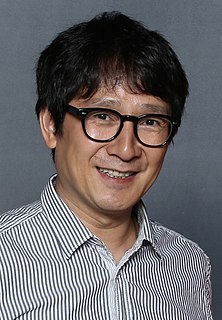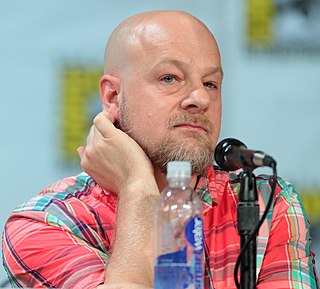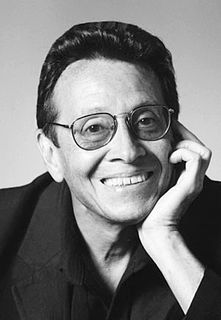A Quote by Tim Matheson
Whenever I study a genre of film-making, Steve Spielberg is the first guy I go to. Even Catch Me If You Can, which is a very lightweight kind of thing, if you just look at the economy of the way he designs his shots and works around actors, the craft is amazing.
Related Quotes
As a kid, I always wanted to be like Spielberg and to make wonderful movies. Even when I was making 'Indiana Jones,' I was looking at how he would come up with these amazing shots and how he would choreograph the blocking and all that. So I knew from early on I would go to film school and try to work behind the camera.
See, the first thing about actors is, you're just trying to get a job; and you audition and audition and you finally get them. And you still consider yourself an auditioning actor. I auditioned for One Fine Day, I wasn't offered that. So you're still in that 'Hey, I'm just trying to get a job' thing. Then, you get to the point where, if you decide to do it, then they'll make the film. That's a different kind of responsibility, and it usually takes a couple of films to catch up. And then you have to actually pay attention to the kind of films that you're making.
Not only do I look at the playback with the actors, but I look at the on-set assembly footage with the sequences with my actors as well. These are the reasons why I take twice as much time to shoot a film in Korea. Thinking back, I remember on my first ever Korean film, I never used any playback or on-set assembly, so all I had to do was to tell myself it's just like making my first ever Korean-language film. After that, I felt right at home.
So I'm always inspired by my fellow actors. And that's kind of a constant for me. I have huge respect for our profession and our craft. And I seek in my work to create connections, first for me with the character and then the character with the other actors, and then ultimately, all of us together connecting with the audience in a way that sometimes is subliminal, even.
On one level, this was the biggest challenge out there - to make a film of this scope, in this amount of time, and to go into a different genre, essentially. Yes, I've done a vampire film, but 'Eclipse' is a very different kind of thing. This is a romantic story, which swings from a darker, more abject feeling to very pure romantic scenes.
The first bill that President Obama signed into law was the Lilly Ledbetter Fair Pay Act. I think it says something about his priorities that the first bill he put his name on has my name on it too. As he said that day with me by his side, "Making our economy work means making sure it works for everyone."
The first bill that President Obama signed into law was the Lilly Ledbetter Fair Pay Act. I think it says something about his priorities that the first bill he put his name on has my name on it too. As he said that day with me by his side, 'Making our economy work means making sure it works for everyone.'
Steve held us to a high standard. He told us he was going to when we first met him at the USA camp. He's been a great leader. I mean, the guy always keeps his composure. He has an amazing mind for the game, and man, Steve, I'm just proud of him. The way he's balanced everybody and let us know what our roles are, he's been great for us. Him and the whole coaching staff. We all deserve this together, we work so hard.
Any photographer worth his/her salt - that is, any photographer of professional caliber, in control of the craft, regardless of imagistic bent - can make virtually anything look good. Which means, of course, that she or he can make virtually anything look bad - or look just about any way at all. After all, that is the real work of photography: making things look, deciding how a thing is to appear in the image.
Right away, I knew I didn't want to have that look of other guys with long hair and bell-bottom pants, because everybody else had that look. I kind of adopted my boarding-school look, which made me stand out. Then the next thing you know, the first song on my first record is a song called "School Days." It's about going to the boarding school I went to. So then I just started to write about myself. The very first song I ever wrote was about a guy I met in a boatyard that we were working in. So I've always had this thing about sticking to more or less what I knew.
Step back in time; look closely at the child in the very arms of his mother; see the external world reflected for the first time in the yet unclear mirror of his understanding; study the first examples which strike his eyes; listen to the first words which arouse within him the slumbering power of thought; watch the first struggles which he has to undergo; only then will you comprehend the source of his prejudices, the habits, and the passions which are to rule his life. The entire man, so to speak, comes fully formed in the wrappings of his cradle.



































